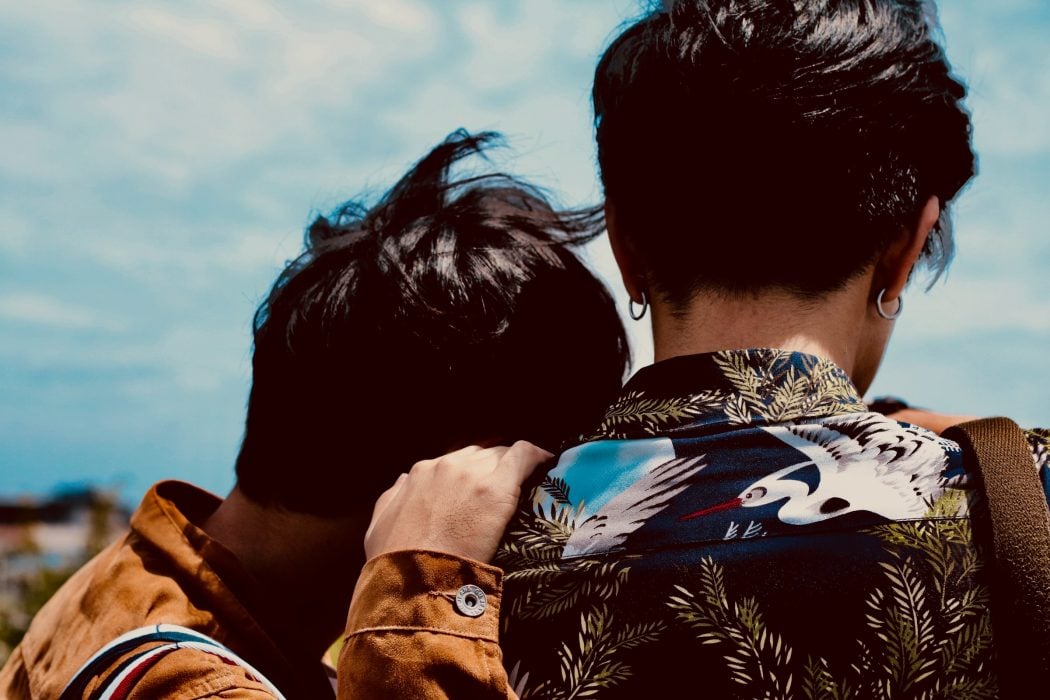This year’s NDP Rally is indeed like none other I have seen before. Our Prime Minister made a very bold announcement that the government will finally repeal the archaic law 377A from the Penal Code, decriminalising the act of sex between 2 men.
He took a good 15 minutes of the rally to address the entire nation on this very controversial subject. A subject that sees opposing views from the pro-LGBTQ+ camp and the conservative and religious groups, who have extremely strong views against the queer community.
He went on to explain the reasons for the repeal as the society’s level of acceptance has changed over the years, and the repeal will give the gay community some form of relief and balance. More importantly, they want to do it in a manner that is controlled via the Parliament instead of through the courts.
However, he added that in tandem with the repeal, the Government would also be making amendments to the current Constitution to make clear that it is Parliament’s prerogative to define marriage as being between a man and a woman and to make other pro-family policies on that basis.
In the last few days, there have been countless articles and social debates on the Repeal of 377A and the protection of the definition of marriage.
I am not here to debate on that subject.
However, I have been asked to comment on housing issues and how the repeal of 337A and the tightening of the marriage definition will affect the LGBTQ+ in the long run. So here are my thoughts:
1) The Rental Market
Up till now, it is very common for tenancy agreements to include an eviction clause due to legal activities. This clause has been something of concern to gay tenants, but with 377A officially off the books, male gay tenants will have peace of mind and not have to worry about landlords threatening to evict them with such discriminatory action.

2) The HDB Housing Policy
Today, 80% of Singaporeans live in HDB flats. So most LGBTQ+ will likely be living in public housing, and many will retire in them in the future.
However, HDB is very specific with their definition of ‘family nucleus’, and this is used to determine eligibility, grants, what type of unit one can buy, and at what location.
LGBTQ+ and same-sex couples are not part of the ‘family nucleus’ definition – in fact, LGBTQ+ has never been mentioned in the public housing policy. So up till now, LGBTQ+ can only depend on two housing schemes – the Singapore Citizen Single Scheme and Joint Singles Scheme if they wish to buy an HDB flat. And we know that these two schemes are subjected to the 35-year-old minimum eligible age.
With the further ‘protection’ of marriage exclusively for a man and a woman, we can be sure that the HDB definition of the family nucleus will not be changed (anytime soon). So the LGBTQ+ can forget about going through the marriage route to fight for equality in public housing. Could we try for a civil union or domestic partnership instead? Only time will tell.
On the other hand, the population of single heterosexual Singaporeans who choose not to get married are growing yearly. The voice of this group is growing, and they are great allies for the LGBTQ+. A look into the history of public housing in Singapore, and we can see that the government has relaxed the rules for the single community over the years. Perhaps we will see a day (not too far in the future) when the minimum age for singles buying an HDB flat will be reduced from 35 to 30 years old.

3) The Private Sector
In comparison, the private property market is a better playing ground for everyone – that is, if you can afford it.
Most LGBTQ+ are able to purchase property freely as an individual, or with a partner. However, the lack of legalized marriage does require more careful planning and legal procedures to safeguard the interest of both parties.
Without legalised marriage, same-sex couples also do not enjoy benefits such as ABSD tax remission for foreign/PR spouses, and from buying a 2nd matrimonial home before selling the 1st home. This has been a real bummer for many cross-national LGBTQ+ couples.
The Right Step…
In summary, repealing 377A may not have a very significant impact on homeownership for the LGBTQ+ now.
While the current public housing policy has much room for improvement for singles (and LGBTQ+), it is still possible for many to afford a home with the right knowledge and planning. Take me, for example; I am 47 years old and living with my partner of 16 years – I have successfully bought 2 HDB flats over the past ten years, and we have plans to buy private property as an investment.
The repeal of 377A is the first step in the right direction. There will be plenty of noise from the opposing side, and there will be even more work to be done as a community in our quest for equality. But let’s be very thankful for today; take time to heal so we can continue to move forward as a stronger community in an inclusive nation.
–
About the Author
William Tan is a licensed realtor with a speciality in servicing the LGBTQ+ community. He is also the co-founder of Prident, a non-profit LGBTQ+ professional collective aimed at helping the community on economic wellbeing issues. William regularly writes and runs webinars to share his knowledge on property investment for LGBTQ+ and has been featured in EdgeProp Singapore, The Edge, Stacked Home, Esquire magazine and The Financial Coconut podcast. He has helped many LGBTQ+ clients with their property portfolio – market to sell, buy and rent properties. He also runs an online LGBTQ+ Clinic to answer private questions from the community.
Read more on PRIDENT here.
The post 377A Repeal : My Thoughts On How It Affects Housing For The LGBTQ+ appeared first on .

